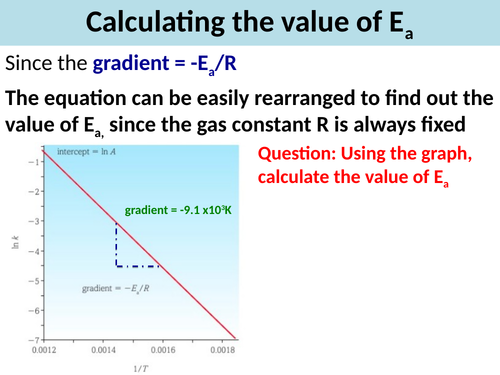


A structured KS5 lesson including starter activity and modelled practice questions on The Effect of Temperature on the Rate Constant (The Arrhenius Equation).
By the end of this lesson KS5 students should be able to:
- Explain qualitatively the effect of temperature change on a rate constant,k, and hence the rate of a reaction
- To Know the exponential relationship between the rate constant, k and temperature, T given by the Arrhenius equation, k = Ae–Ea/RT
- Determine Ea and A graphically using InK = -Ea/RT+ InA derived from the Arrhenius equation
Declaimer: Please refrain from purchasing this popular resource for an interview lesson or a formal observation. This is because planning your own lessons, including using your own lesson PowerPoints, is a fundamental skill of a qualified/unqualified teacher that will be assessed during the scenarios outlined above
Something went wrong, please try again later.
This resource hasn't been reviewed yet
To ensure quality for our reviews, only customers who have purchased this resource can review it
Report this resourceto let us know if it violates our terms and conditions.
Our customer service team will review your report and will be in touch.